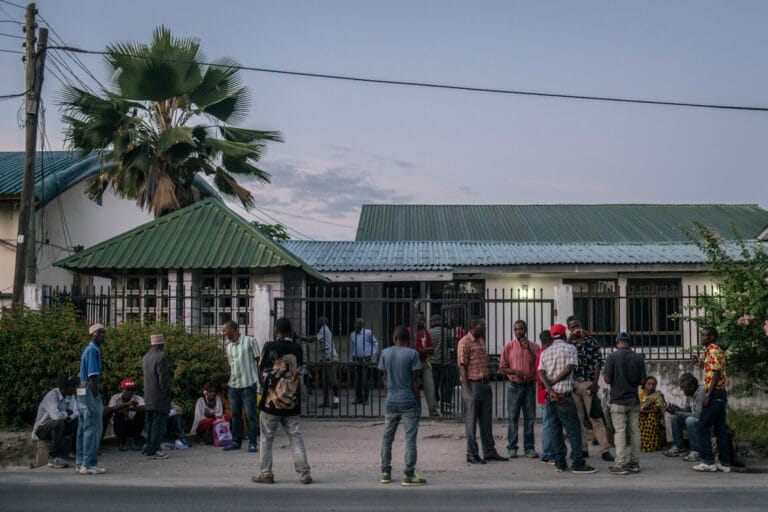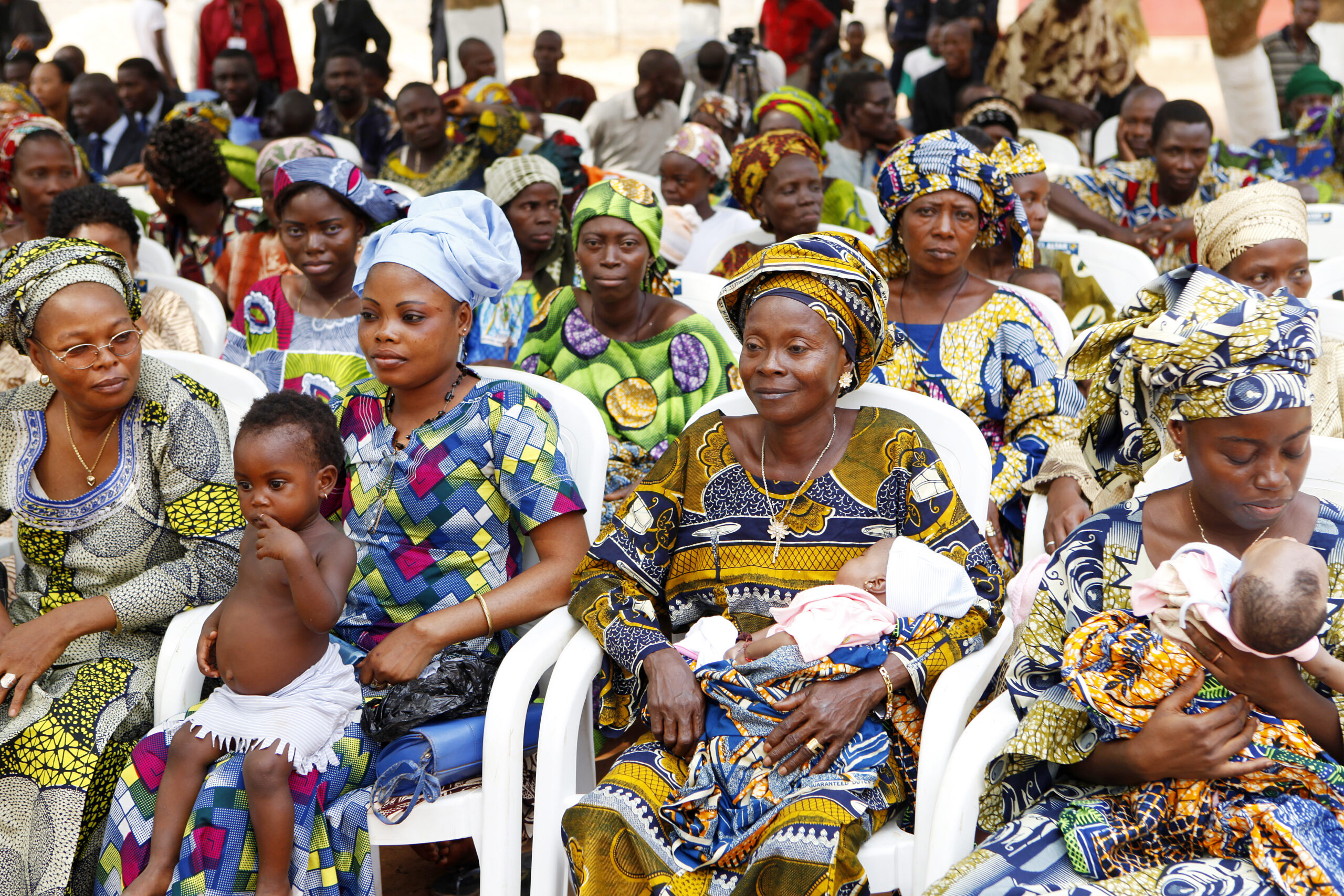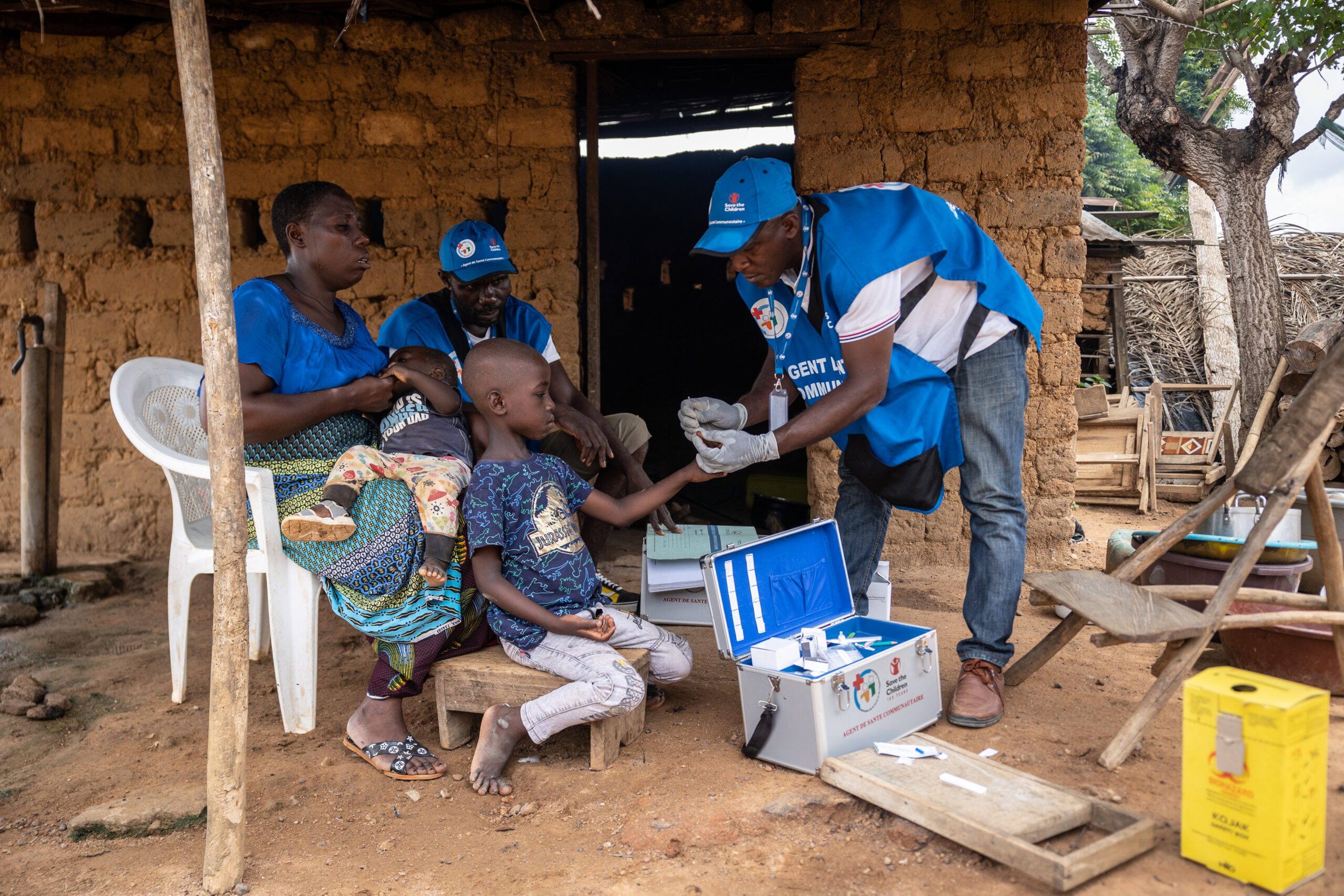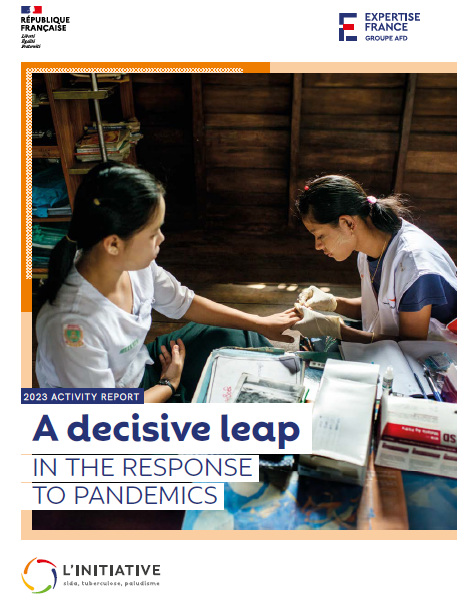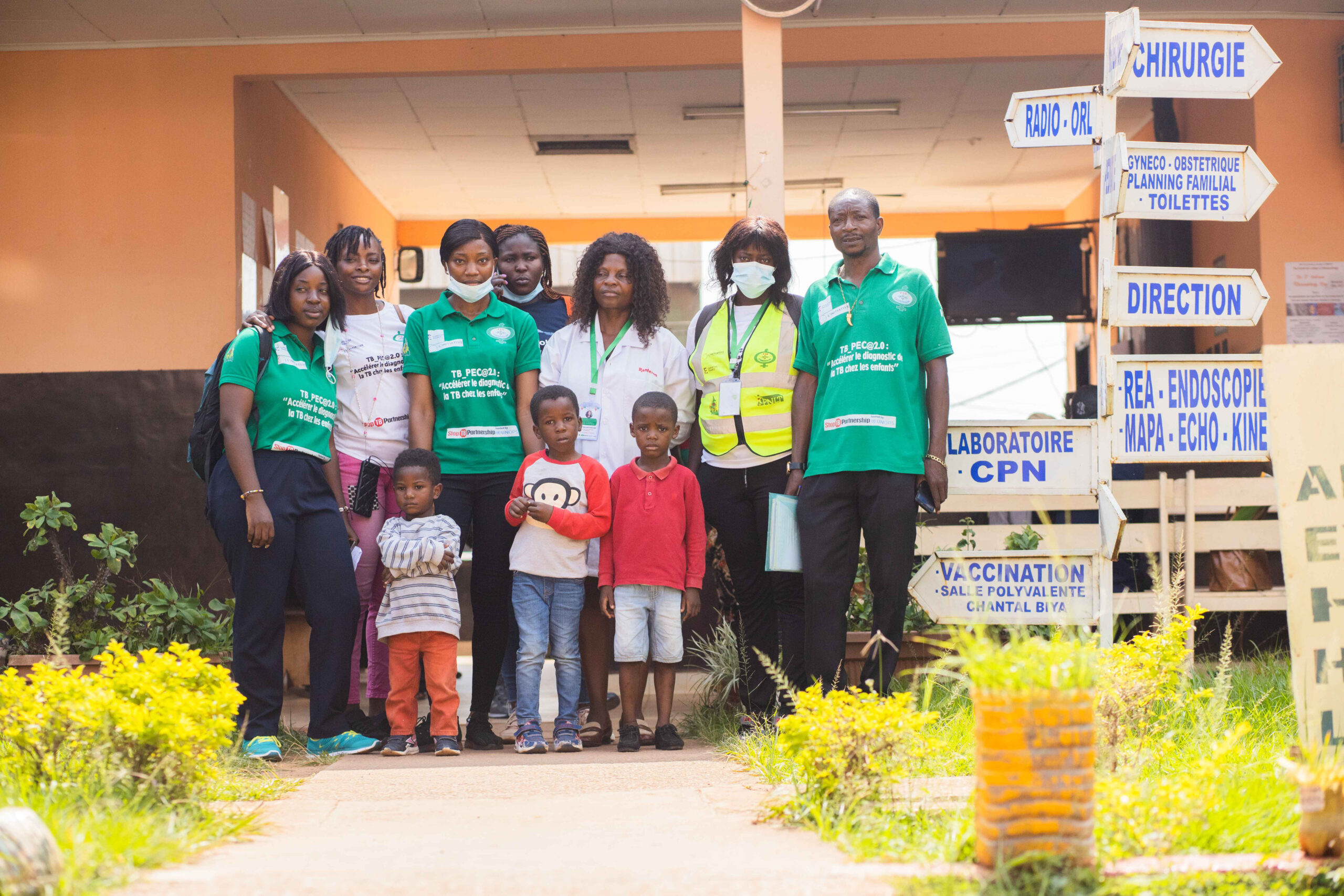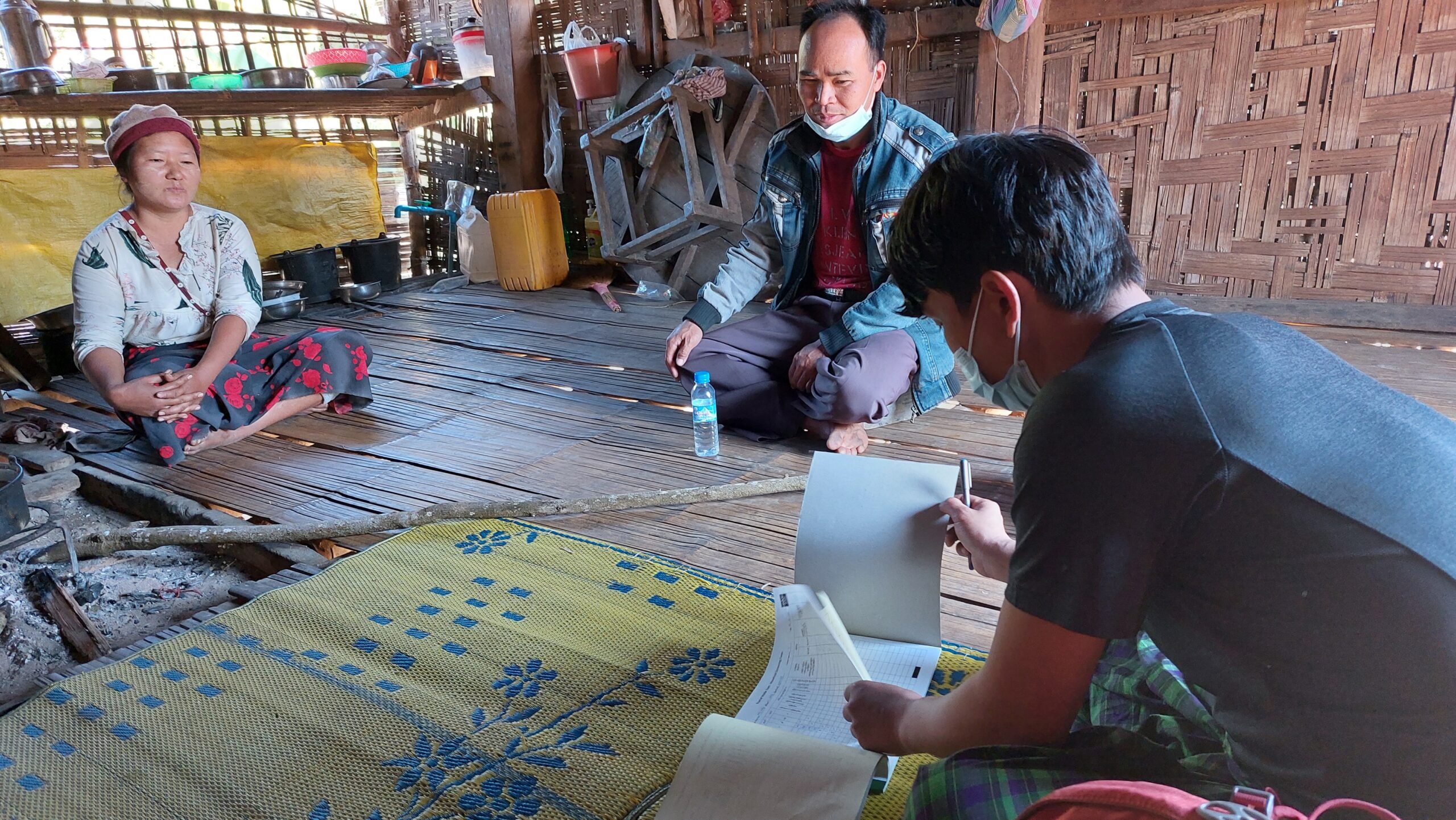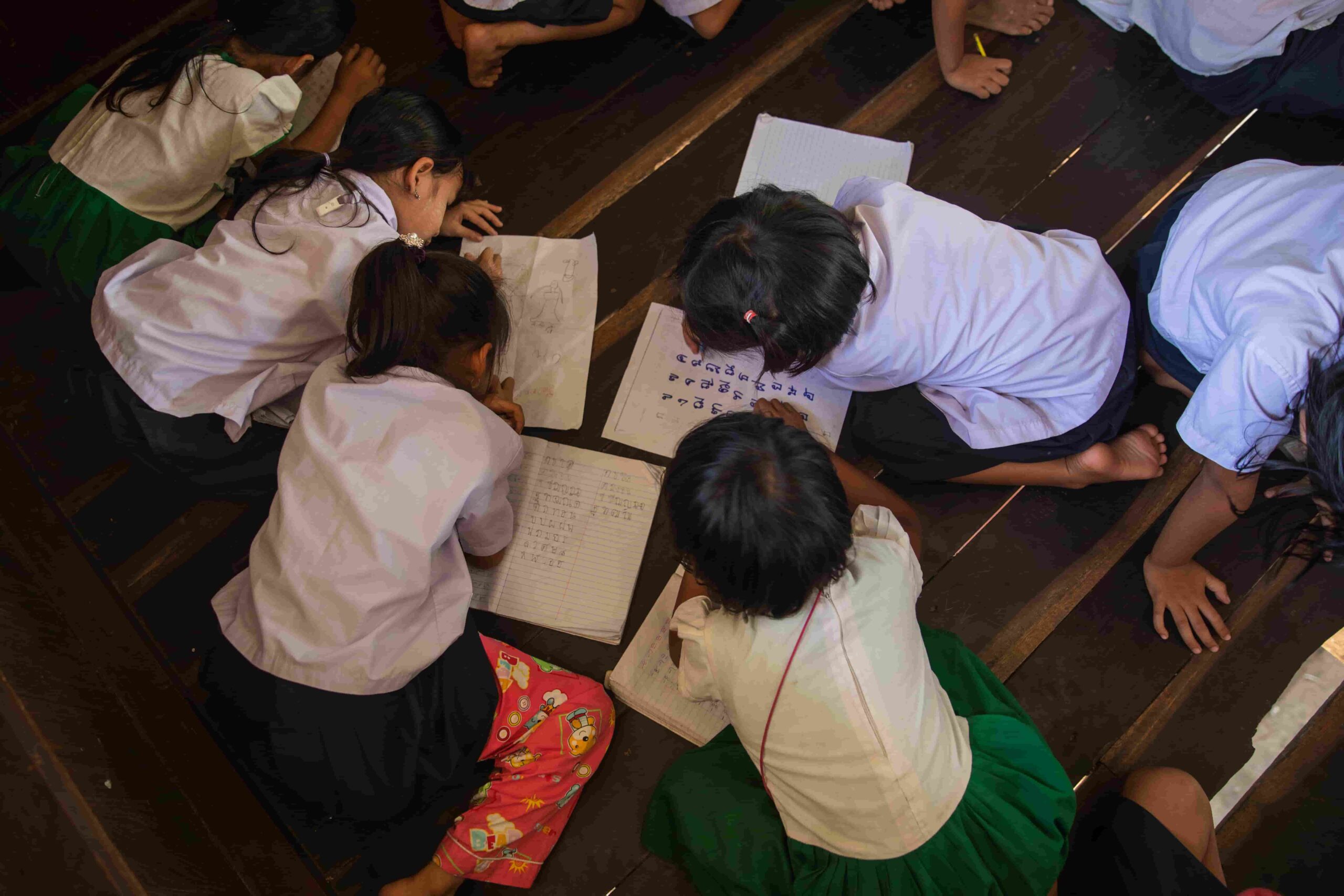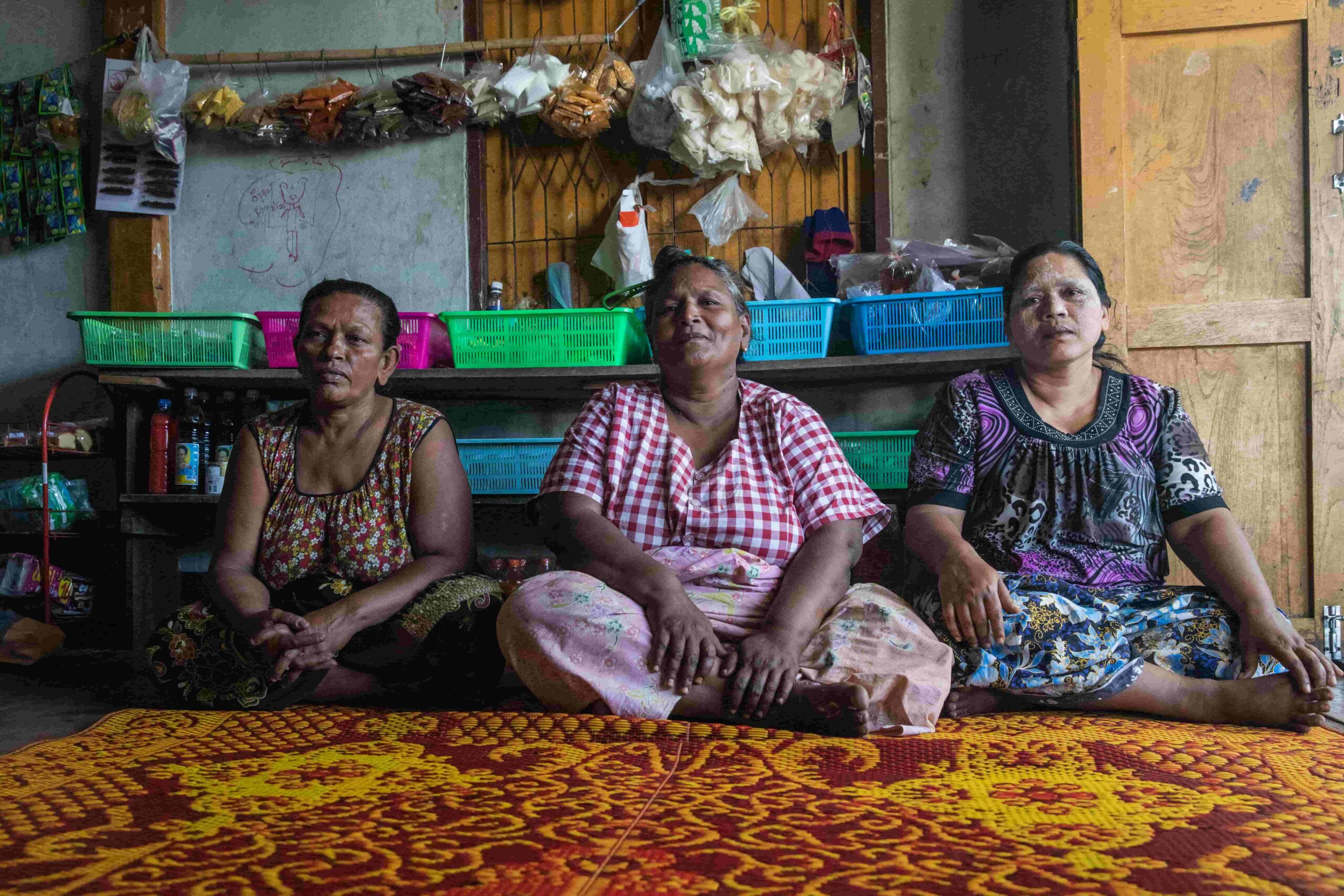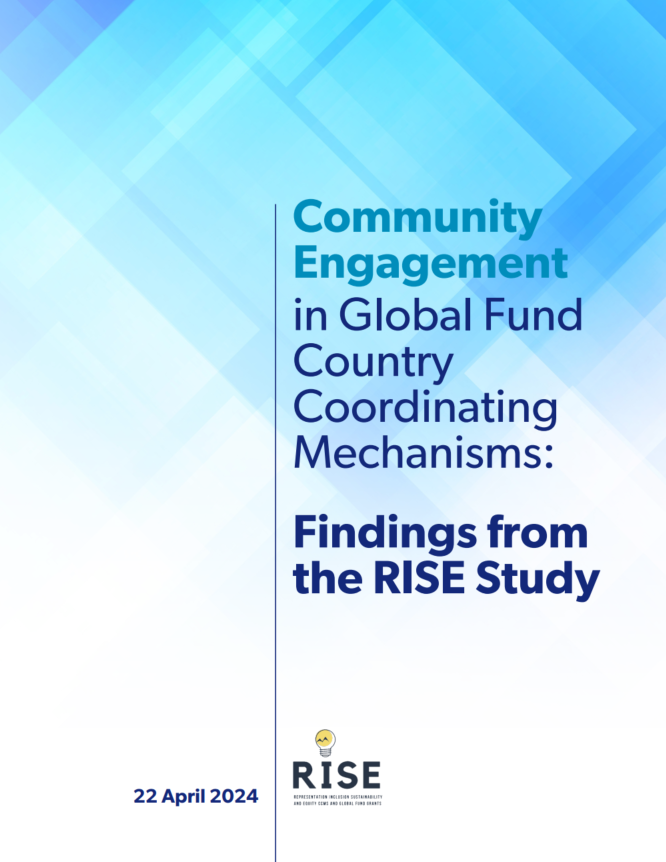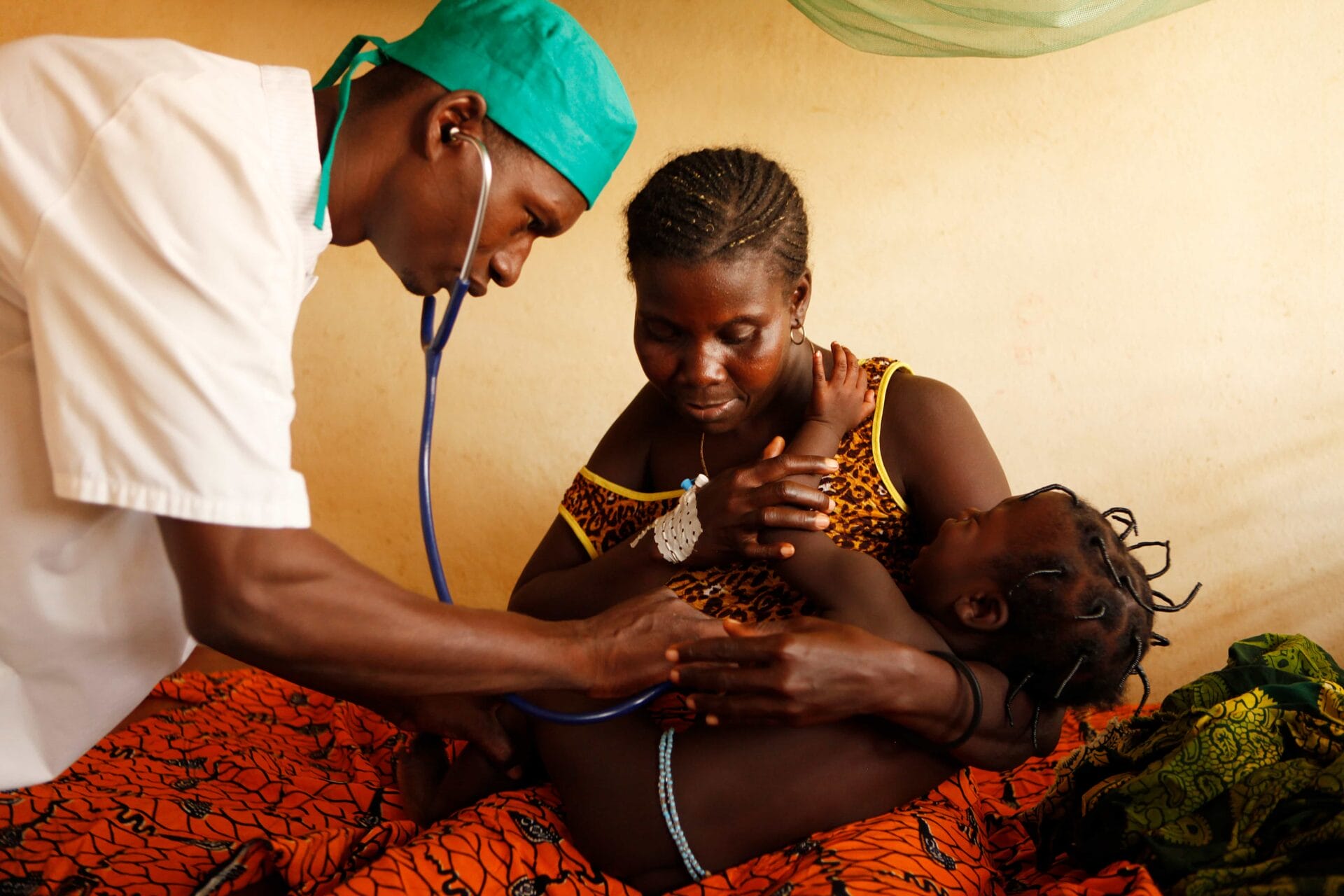Gender is seen as a key issue for development cooperation at Expertise France. L’Initiative is committed to the cross-cutting integration of gender in all of its activities, in accordance with France’s international strategy for equality between women and men. This approach to gender is, therefore, integrated into all L’Initiative activities.
Technical assistance incorporating gender
L’Initiative’s Expertise Channel mobilizes experts with skills in many different thematic areas of the response to HIV and AIDS, tuberculosis, and malaria. The objective is to provide structured responses and develop tailored, coordinated approaches to strengthen (at their request) the capacity of local, regional, and national actors.
The type of support and expertise that is requested depends on the stage of the Global Fund funding cycle: carrying out national dialogue, developing national strategic plans, preparing funding requests, grant implementation and programmatic and financial monitoring, etc. In priority countries for French official development assistance, enhanced support may be provided. Strategic planning of technical assistance needs is carried out in advance with recipient countries to enable this type of planned support to be developed.
L’Initiative has and continues to deliver gender-sensitive technical assistance. Below are some examples.
Support to implement the regional SRHR roadmap
Within the framework of the Generation Equality Forum (GEF) in Burkina Faso, Benin, Togo, Guinea, Niger, and Senegal with the Ministry of Health and Public Hygiene of Burkina Faso.
The Generation Equality Forum, a global gathering for equality between women and men, was held in Paris 30 June – 2 July 2021. It was organized by UN Women and co-chaired by France and Mexico. The main objective of the forum was to establish a set of concrete measures to achieve equality during the United Nations Decade of Action (2021-2030).
In order to achieve this objective, six multi-stakeholder coalitions have been created, including one on sexual and reproductive health and rights (SRHR), co-chaired by Burkina Faso alongside France, Denmark, Argentina, North Macedonia, and international organizations. The coalition initiated reflections in collaboration with six other countries of the sub-region (Benin, Togo, Guinea, Niger, and Senegal), which resulted in commitments being adopted to enable the development and scale-up of public policies supporting SRHR over the next ten years. The coordination body of the regional coalition is based in Ouagadougou at the Ministry of Health and Public Hygiene.
Implementation of these commitments includes a focus on strengthening national frameworks and policy environments and supporting implementation of Global Fund grants in terms of health systems strengthening (HSS) and responding to pandemics and associated comorbidities.
It was in this context that the Generation Equality Forum’s regional coordination committee submitted a request for technical support to Expertise France via L’Initiative. Tailored SRHR expertise was requested to support countries involved in implementing the regional roadmap to achieve SRHR commitments in the context of the GEF.
This technical support will help to strengthen synergies with key technical and financial partners and other sexual and reproductive health initiatives underway. This assignment is currently in the development phase.
See the website of the Generation Equality Forum.
Gender mainstreaming in projects led by NGOs and TA assignments with NGOs
In line with the United Nations Sustainable Development Goals (SDGs), Expertise France’s gender strategy is aligned with achieving SDG 5 “Achieve gender equality and empower all women and girls”. In this respect, L’Initiative applies the Development Assistance Committee (DAC) gender equality policy marker. It is based on a three-point scoring system (0: does not target gender equality/ 1: significant objective/ 2: main objective).
Over the period, gender mainstreaming in projects led by local NGOs has increased (66% of projects led by a local NGO were rated DAC 1 or 2, while projects led by international NGOs were rated DAC 1 or 2 in 36% of cases). However, only 28% of the technical assignments with local NGOs focused on gender mainstreaming in a significant or focused way.
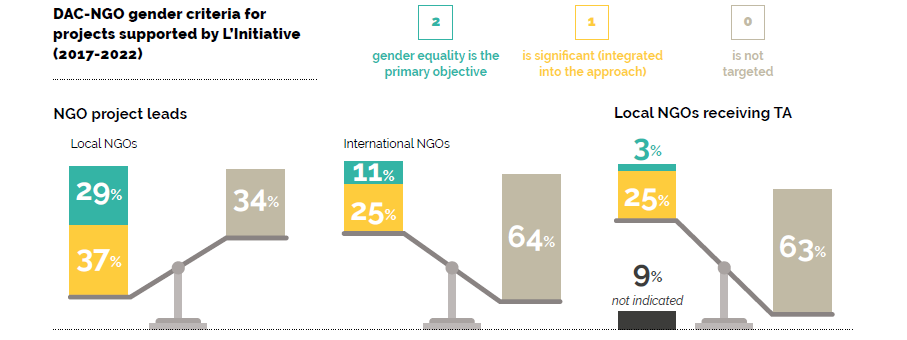
Download the leaflet “Key data – L’Initiative support to NGOs 2017-2022” here.
Supporting the NGO, REACH Ethiopia, to integrate gender in a cross-cutting way
The NGO REACH Ethiopia, in partnership with the Organic Health Care Service Ethiopian Resident Charity (OHCS), which was created by former patients with drug resistant tuberculosis (TB) and people living with HIV, is implementing the project “Reaching vulnerable and key infected populations in pastoral areas in Ethiopia”.
The project aims to help reduce the incidence of tuberculosis by 90% and end the epidemic in the country. In order to achieve this, the project plans to work with pastoralist communities in two areas of the Afar regional state.
Implementation approaches will focus on different models of TB case detection and treatment, improving access to TB care for pastoral communities (e.g., integration of TB care services into the mobile health team and capacity building of the health system), strengthening TB knowledge in the community, identifying the lost tuberculosis patients, supporting treatment adherence through the engagement of community volunteers, and finally, strengthening the capacity of laboratory experts (e.g. training nurses). The project also aims to produce and share quality data, particularly on community involvement in detecting, treating, and curing TB.
REACH Ethiopia submitted a request for technical assistance (TA) to improve gender mainstreaming in the project through the development of a tailored transformative approach.
This TA assignment will have multiple objectives. The first will focus on carrying out a situational analysis on gender in Ethiopia, both in terms of socio-cultural dynamics and legal considerations. Through the project funded by L’Initiative, an analysis will be carried out looking at the level of gender mainstreaming within REACH Ethiopia, and more specifically, the strategic components of the project from a gender, rights, and tuberculosis perspective to co-create concrete and achievable recommendations. In addition, an awareness-raising workshop and a capacity-building workshop on gender will be held for the members of REACH Ethiopia’s board and executive team.
